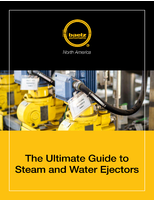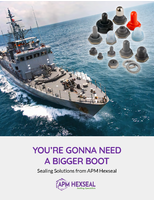Robotic Manufacture and Filling of Infusion Bags
Bayreuth –
High-speed solution for the pharmaceutical industry
With its latest development – the IV Express – welding technology specialist Kiefel has introduced a pioneering facility for the production and filling of infusion bags. An ultra-fast robot ensures that the huge output of up to 7,200 units per hour is consistently maintained.
Specifications for the production of infusion bags with integrated filling are anything but easy to comply with: a consistently high level of quality and hygiene, stringent clean room standards, unlimited flexibility and maximum output from minimum footprint are the main criteria on the user's wish list.
With IV Express, Kiefel GmbH (based in the Bavarian town of Freilassing) now has a product in its portfolio that is tailored to user demand. The company is a world leader in the design and manufacture of machines for the processing of plastic foil materials. Extensive expertise and core competencies in molding and sealing have led to the realization of a plant design that is unparalleled on the global market.
Output rates for the IV Express speak for themselves: depending on the machine's configuration, 2, 4 or 6-up, an impressive output of 2,400, 4,800 or even 7,200 items per hour can be attained. The system can be flexibly configured to produce different size IV bags in multiples of two, four and six as well as multi-chamber bags with peel seam. With minimal effort for tool changeover, users can achieve maximum productivity, as the compact systems operate at short cycles with high process reliability.
Costly clean room facilities used optimally
Kiefel designers have focused on the most compact design possible in order to keep space requirements in costly clean rooms to a minimum. Completely finished in stainless steel, the smallest 2-up configuration of the plant has a floor space requirement of just 13 square meters. The example of Kiefel IV Express with thermal contact welding process in 4-up configuration shows just how impressive the relationship of footprint to output can be. The plant produces up to 4,800 infusion bags per hour. With a floor space requirement of only 18 square meters, this equates to an output of approximately 270 items per square meter per hour. The largest 6-up version achieves an output of 7,200 products per hour in an area of 24 square meters.
In order to attain this level of performance, all the work and process steps both in the production of bags and in their filling are consistently optimized with regard to cycle times. Equally high demands were placed on the robots that are integrated into the filling station for reasons of flexibility. "The robot for this application needs to be ultra-fast, but at the same time, due to the plant's small footprint, must be very compact and conform to the required clean room classification," says Reinhold Plot, Marketing Manager at Kiefel.
It is no coincidence that market leader Kiefel's quest for a suitable robot brought them to Stäubli Robotics. For many years, the experts at Stäubli have been investing resources and effort into the development of robots for use in the medical, pharmaceutical and life science sector. Stäubli robots are now the first choice for applications in these industries. The best machine for GMP production environments Class A through to D can quickly be found within the broad program of SCARA and articulated-arm robots. The fast and compact Stäubli TX60 immediately stood out as the best choice for use in the IV Express filling station.
Stäubli TX60: fast, reliable and suitable for clean rooms
The small six-axis robot is perfect for use in the filling station, as it not only sets new standards in terms of speed and precision but also impresses by virtue of its low particle emissions and outstanding reliability. Like all six-axis machines in the TX series, the TX60 is characterized by a fully enclosed structure with internal cabling and integrated drive technology. This makes the robot easy to clean, and even in the standard version, it already complies with clean room classification ISO 5 – more than adequate for use in the IV Express which itself meets the requirements of GMP Class C.
When handling pharmaceutical liquids, it is important to abide by existing health regulations whilst ensuring accurate dosing at all times. Kiefel guarantees a filling tolerance of ±1 percent in the automatic filling station of the IV Express. Sealing of bags once they have been filled is performed by the Stäubli TX60. The robot has a major advantage here as compared to a fixed automation solution. Reinhold Plot: "With the robot, we can be very flexible and handle different sealing systems, thus keeping the range of IV bag variants as large as possible. Furthermore, the Stäubli TX60 is fast enough to keep up with the short cycle times of our machine."
A typical standard task performed by the six-axis robot is the closing of filled bags that have two different ports. The robot selects the type A port at pick station 1, moves to station 2 where it picks the type B port and places them precisely and quickly on the tubes in the IV bag. In order to perform this task, the robot has been equipped with a complex multiple gripper, specially developed by Kiefel, that must be changed whenever the system is required to deal with a different variant. This procedure can be carried out in a very short time.
Pioneering plant design offering every option
But it is not just the robot that provides flexibility: the superior design of the plant is also a contributory factor. For example, the user can choose between different printing stations, either heat printing or laser. The integration of application-specific control and inspection units has also been carefully thought out and can be simply accomplished, as has the possibility of supplying oxygen or gas feeds. No matter what configuration is selected, the Kiefel IV Express is a real stalwart which automatically and reliably does its job every day around the clock in a three-shift operation, producing and filling well in excess of 100,000 IV bags.
Kiefel has a real winner with this innovation, as became evident a short time after launch. Reinhold Plot: "The system meets all user requirements almost to perfection. Consequently, global demand has been very high. And amazingly, this hi-tech plant 'made in Germany' is even proving popular in the Chinese market!"
For further information, please contact:
Stäubli Robotics (Deutschland)
Sonja Koban
Head of Marketing
Phone: +49 (0)921 88 32 12
Fax: +49 (0)921 88 34 44
s.koban@staubli.com
About Stäubli: Textile machinery, connectors and robotics
Stäubli is a mechatronics solution provider with three dedicated divisions: textile machinery, connectors and robotics. Employing more than 4,000 people, Stäubli is an international group based in Pfäffikon (Switzerland) with offices in 25 countries and agency representation in 50 more.
www.staubli.com




